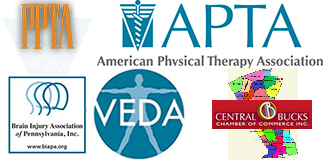Postural orthostatic tachycardia syndrome, also known as POTS, is a neurologic disorder affecting 1-3 million Americans that causes dizziness and fainting. More woman than men are affected by POTS and it usually occurs between the ages of 15 and 50. There are quite a few symptoms related to POTS that are also associated with a number of other disorders, making it difficult to come up with a diagnosis. It is normal for your heart rate to increase when you stand up from a seated position. For those with POTS 18 and older, their heart rate increases more than 30bpm and 40bpm for those less than 18, when they first stand up and/or increases to 120bpm or greater within 10 minutes of standing.
Symptoms of POTS: dizziness, lightheadedness, palpitations, near fainting, headaches, fatigue, nausea, sleep disturbances, diarrhea, constipation, change in perspiration, problems with temperature control, fibromyalgia, trouble concentrating, and temperomandibular joint disorder.
5 ways to lessen the symptoms of POTS:
- Sodium Consumption: Salt is needed to help retain water within the body which leads to an increased blood volume. The increase in blood volume helps to get more blood to both the heart and the brain.
- Drink More Fluid: Fluids plus salt, helps to increase blood volume and blood flow. Doctors recommend 2-3 liters of hydrating fluids per day (non caffeinated drinks, juices, water).
- Exercise: Movement helps patients to build and maintain their muscle mass as well as prevent blood from pooling in the legs/feet. Recumbent rowing, cycling, and swimming are good options for patients that cannot exercise in an upright position due to their symptoms.
- Wear Compression Stockings: Compression stockings with 30-40 mm Hg of pressure can help to increase blood flow to the heart and can lessen the amount of blood that pools in the legs/feet while standing upright.
- Medication: Currently there are no drugs approved by the FDA for POTS. Through trial and error, different drugs can be used to decrease symptoms. As with most medications there are side effects. Medications that are commonly taken among POTS patients include beta blockers to slow down an increased heart rate, drugs to expand blood volume, increase blood pressure, reduce fatigue, reduce muscle weakness, increase blood flow to the heart, and constrict blood vessels.
www.WWSPT.com

